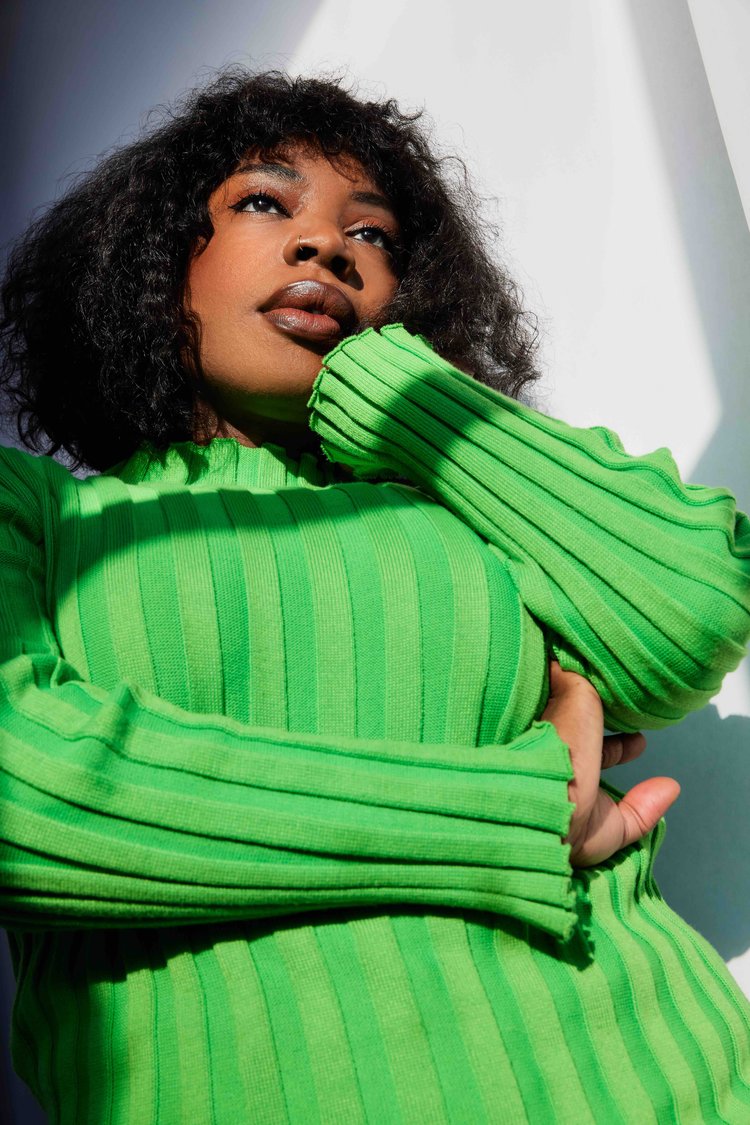Dec
05
Thu December 5th, 2024
8:00PM
Main Space
Minimum Age: 18+
Doors Open: 7:00PM
Show Time: 8:00PM
Event Ticket: $15
Day of Show: $15

Ticketing Policy
This show includes both Standing and Seated tickets. By purchasing a Seated ticket you agree to also purchase a minimum of two food and/or beverage items per person. Table seating is first come, first seated. Please arrive early for the best choice of available seats. Seating begins when doors open. Tables are communal so you may be seated with other patrons.
All ticket sales are final. No refunds or exchanges. Physical photo ID required for all shows with age restrictions – no exceptions.
When an event sells out, fans who missed out on tickets can join the Waitlist for a chance to purchase tickets from someone who can no longer attend. Joining the Waitlist does NOT guarantee entry to the event, please do NOT arrive at the venue unless you are contacted about tickets becoming available.
Joining the Waitlist:
• If you’re looking for a ticket to a sold out show, add your info the the corresponding Waitlist.
• If a ticket becomes available, you’ll be notified and your credit card will be charged.
Listing Your Ticket on the Waitlist:
• If you already have a ticket, you can list it on the waitlist through the “My Tickets” page.
• Once we find a buyer for your ticket, you will be notified.
Marquis Hill

From his beginnings as one of Chicago’s most thrilling young trumpeters, to his current status as an internationally renowned musician, composer and bandleader, Marquis Hill has worked tirelessly to break down the barriers that divide musical genres. Contemporary and classic jazz, hip-hop, R&B, Chicago house, neo-soul—to Hill, they’re all essential elements of the profound African-American creative heritage he’s a part of. “It all comes from the same tree,” he says. “They simply blossomed from different branches.”
That mission to bring styles together, complemented by Hill’s absolute mastery of his instrument, is a through line connecting his many achievements. It can be heard on his latest album, Modern Flows Vol. II, with its seamless blend of jazz interplay, hip-hop-infused rhythms and socially conscious spoken-word. It’s integral to The Way We Play, his Concord Jazz debut from 2016, where Hill and his musicians reinvent jazz standards using their generation’s wide- ranging influences. It marks the four records Hill self-released before November of 2014, when he won the Thelonious Monk Institute of Jazz competition and became a presence on the global scene virtually overnight. And it defines the revelatory live dates by Hill’s longtime working group, the Blacktet, which the Chicago Tribune called “a remarkably polished, immensely attractive ensemble.”
For Hill, playing and listening without limits has long been an instinct. “It comes naturally; that’s the way I hear the music,” he says. “I came up in a household where my mom played Motown, R&B, Isley Brothers, Barry White, Marvin Gaye. Then I received my first jazz record, by Lee Morgan, and that was added to the collection. … I truly believe that the music is all the same.”
Born in Chicago in 1987 and raised on the city’s culturally rich South Side, Hill began playing drums at age 4, before switching to trumpet in the 6th grade. He attended high school at Kenwood Academy, excelling in its revered jazz-performance program, and was mentored by Bobby Broom, Willie Pickens, Tito Carrillo and other Chicago greats through the Ravinia Jazz Scholars program. Hill earned his bachelor’s in music education from Northern Illinois University and his master’s in jazz pedagogy from DePaul University. During college he made gigs and sessions around Chicago, jamming with and absorbing wisdom from the likes of Fred Anderson, Ernest Dawkins and Von Freeman. Even then, Hill was known in town as a stunningly gifted trumpeter with a soulful, highly textured tone. His sound is now somehow both deeply distinctive and a tour through jazz-trumpet history, evoking the high-drama stillness and space of Miles; the undeniable virtuosity of Clifford Brown and Freddie Hubbard; the groove- savvy phrasing of Lee Morgan and Donald Byrd; and much more.
Well before Hill won the Monk prize—arguably the most important jazz competition in the world—his reputation for brilliance was firmly established in the Midwest, as a member of the Chicago Jazz Orchestra, an in-demand sideman and a bandleader. He also developed into a precocious, determined young label owner, and has released five acclaimed discs—New Gospel,Sounds of the City, The Poet and Modern Flows Vols. I and II—through his Black Unlimited Music Group imprint. “Just having my personality, there’s nothing like being in control of what you produce and put out into the world,” he says. “It’s a great feeling.”
A move to New York in 2014 helped him gain wider exposure and new opportunities—though he frequently returns to his hometown for gigs and projects—and in recent years Hill has garnered an enviable spate of press. Previewing a Blacktet show, the New Yorker said, “His performances and recordings reveal a smart post-bop player who circumvents genre clichés by incorporating elements of hip-hop and contemporary R. & B.” Of The Way We Play, DownBeatwrote, “The groove-laden arrangements provide the perfect soundscape for Hill’s fluid improvisational style, which, with its glass-like lucidity, recalls the crisp elegance of hard-bop stalwart Donald Byrd.” In 2016, Hill earned first place in the “Rising Star–Trumpet” category in that magazine’s storied Critics Poll. Throughout his journey, he has supported and guested with a who’s who of jazz that includes Marcus Miller, Dee Dee Bridgewater, Boney James, Kurt Elling, Joe Lovano and Hill’s trailblazing Chicago peer Makaya McCraven.
Latest Project
New Gospel Revisited is the new album from the fearless and formidable American composer and trumpeter Marquis Hill. A live recording that revisits and reinterprets his debut 2012 album New Gospel, this time round employing a band of super-heavyweight musicians including Walter Smith III, Joel Ross, James Francies, Kendrick Scott and Harish Raghavan. Marquis Hill’s rise over the last few years has been striking and there’s no letting up. Since winning the prestigious Thelonious Monk Institute Jazz Composition award he has demonstrated full command of his art and built a reputation for synthesizing what he describes as the essential elements of the Africa-American creative heritage including contemporary and classic jazz, hip-hop, R&B, house and neo-soul. Now, his sights are set even higher. New Gospel Revisited, is an extraordinary live recording that reimagines his debut as a leader with a new band, a new focus and a sharpened ear as a bandleader, composer and performer. The set is breathtakingly good with a band that sounds as inventive and creative as it reads on paper.
“… New Gospel was my debut album and my first completed production. To revisit this music in a fresh way, with a new band has been uniquely invigorating —and hugely rewarding.” Marquis Hill
Melanie Charles

“Melanie Charles takes us on a journey that embodies the soul of jazz: exploration.” —NPR
There are very few artists whose sound can capture the sentiments of a generation. The Brooklyn born and raised, Melanie Charles, is one of these artists. Over the past few decades, she has made a name for herself through dynamic engagements with jazz, soul, and R&B. Her bold genre-bending style has been embraced by a range of artists including Wynton Marsalis, SZA, Mach-Hommy, Gorillaz, and The Roots. In 2021, she appeared on NPR’s Tiny Desk and stunned with her eclectic style. Through it all, she has remained committed to making music that pushes listeners to consider new possibilities—both sonically and politically. “Make Jazz Trill Again,” a project that she launched in 2016, demonstrates her allegiance to everyday people, especially the youth and is focused on taking jazz from the museum to the streets. “I love jazz, I really fell in love with it deeply. But I was interested in young people interacting with it,” Charles says. The album Y’all Don’t (Really) Care About Black Women is reflective of Charles’ tremendous versatility and imagination as an artist but of also her deep care for community.

